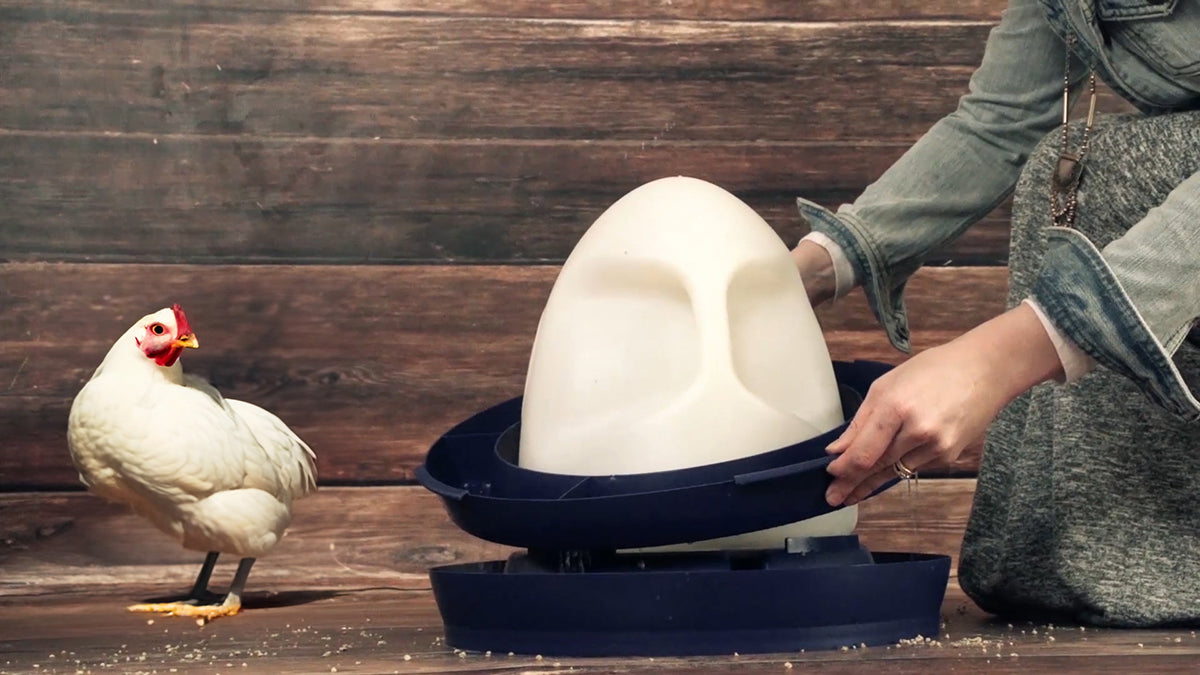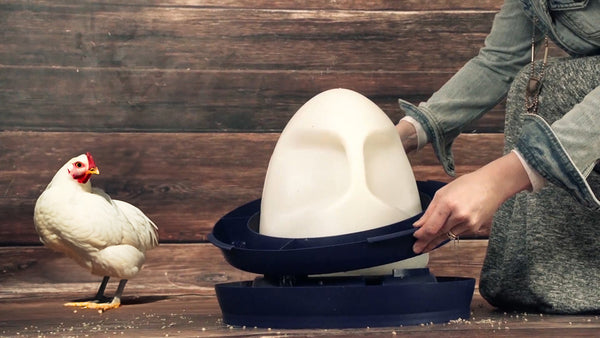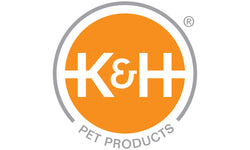
How to Keep a Chicken Waterer Clean
Chickens are unique characters — they provide endless hours of entertainment and supply our homes with delicious sunny-side eggs. If you're raising chickens, you know that, like most birds, chickens tend to be messy! So, keeping a chicken's waterer clean can be challenging.

Chickens easily transport diseases and contaminants to their water source because they live so low to the ground — which is unfortunate since a chicken drinks about a liter of water daily. Keeping your chickens' waterer clean and free of unwanted debris is important because it's essential to their overall health and egg production.
How do I know if my chickens' water is contaminated?
If your chickens roost on top of their waterer, there is a good chance your chickens' water is contaminated. Chickens naturally desire to roost, and a waterer is a perfect roosting spot. In particular, E. coli bacteria from poultry droppings can wreak havoc on your chickens' health.
To keep your chickens from roosting on their waterer, choose a waterer designed to keep them down on the ground where they belong, like the K&H Poultry Waterer or the K&H Duck Waterer.
If your chickens are particularly messy, they will undoubtedly enjoy adding unwanted debris to their water — like hay, feathers, and other barnyard materials. Luckily, floating debris can be easily spotted and removed, so keep an eye out for chicken-coop antics that might pollute your chickens' water.
How often should I clean my chicken waterer?
When water isn't clean, chickens often abandon their water source and quickly become dehydrated. Dehydration, in turn, can affect egg production and potentially force an untimely molt.
How often you clean your chickens' waterer depends on many factors, such as how much water they consume throughout the day, the location of your waterer, and how many chickens you have. You should provide one waterer for every 6 to 8 chickens. Having enough waterers for your flock is essential to keeping your waterers clean and your chickens adequately hydrated.
Cleaning your waterer at least once a week while watching for any unwanted debris will help keep your chickens' water clean and drinkable. If you have the K&H Poultry or Duck Waterer, daily cleaning (for in-between weekly maintenance) will be a cinch with their easy-to-remove filter trays. No draining necessary; simply remove the filter tray, tap lightly, or spray with water to remove any unwanted materials.
While the curved filter tray will help keep out many barnyard contaminants, cleaning your waterer once a week is still a good idea. Luckily, K&H makes cleaning a snap with its cleaning-friendly design. And both waterers are BPA-free — a solid investment and environmentally friendly.
How should I clean my chicken waterer?
Many products are available to clean a chicken waterer, but a little soap, water, and a handy scrubbing brush should do the trick. If you're fighting against a particularly thick residue, consider adding a splash or two of white vinegar to boost cleaning power.
Air-drying can also significantly reduce the growth of any remaining bacteria or algae. So, having a second water tank while your chicken waterer dries is helpful. The K&H Poultry/Duck Waterer - Replacement Tank with Cap is perfect to use between cleanings. The replacement tank is made of the same rust-free materials and perfectly fits the K&H Poultry Waterer and K&H Duck Waterer. And having two waterers is always better than one!
To maintain as much cleanliness as possible between cleanings, place your waterer in a cool and shady spot, away from heavily trafficked areas in the coop. Also, remember that direct sunlight encourages unwanted green algae to form, so shady areas are best for waterer placement.
What do I need to do in the winter?
If you live in an area where temperatures dip below freezing, you should consider a heated chicken waterer or a waterer deicer. These will help ensure your chickens' water remains easily accessible — even on the coldest night. A product like the K&H Universal Waterer Deicer will keep your chickens' water thawed but never hot. It's excellent for most water receptacles for chickens, but it's also great for keeping water thawed for ducks, horses, goats, or any other household pet that spends time outside.
Final Thoughts
If you're proactive with essential weekly cleanings and take immediate action when things don't look or smell quite right, your chickens' water source should keep them happy and healthy for years. Chickens don't require a lot of oversight — they're pretty independent and fun-loving, so providing accessible, clean water is a small way to show how much you care.



Leave a comment